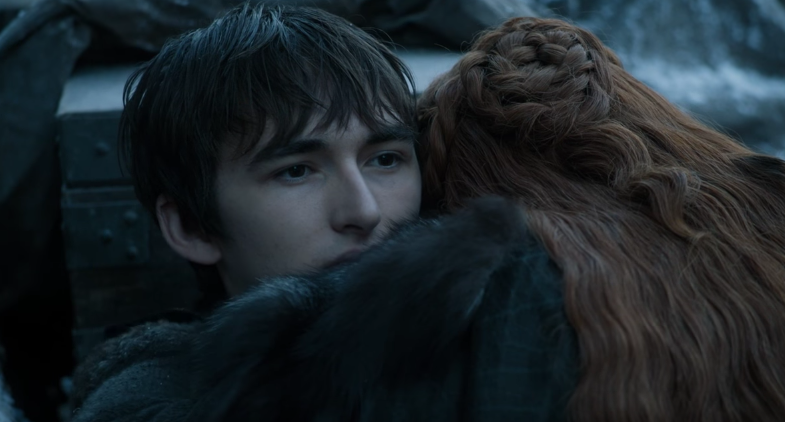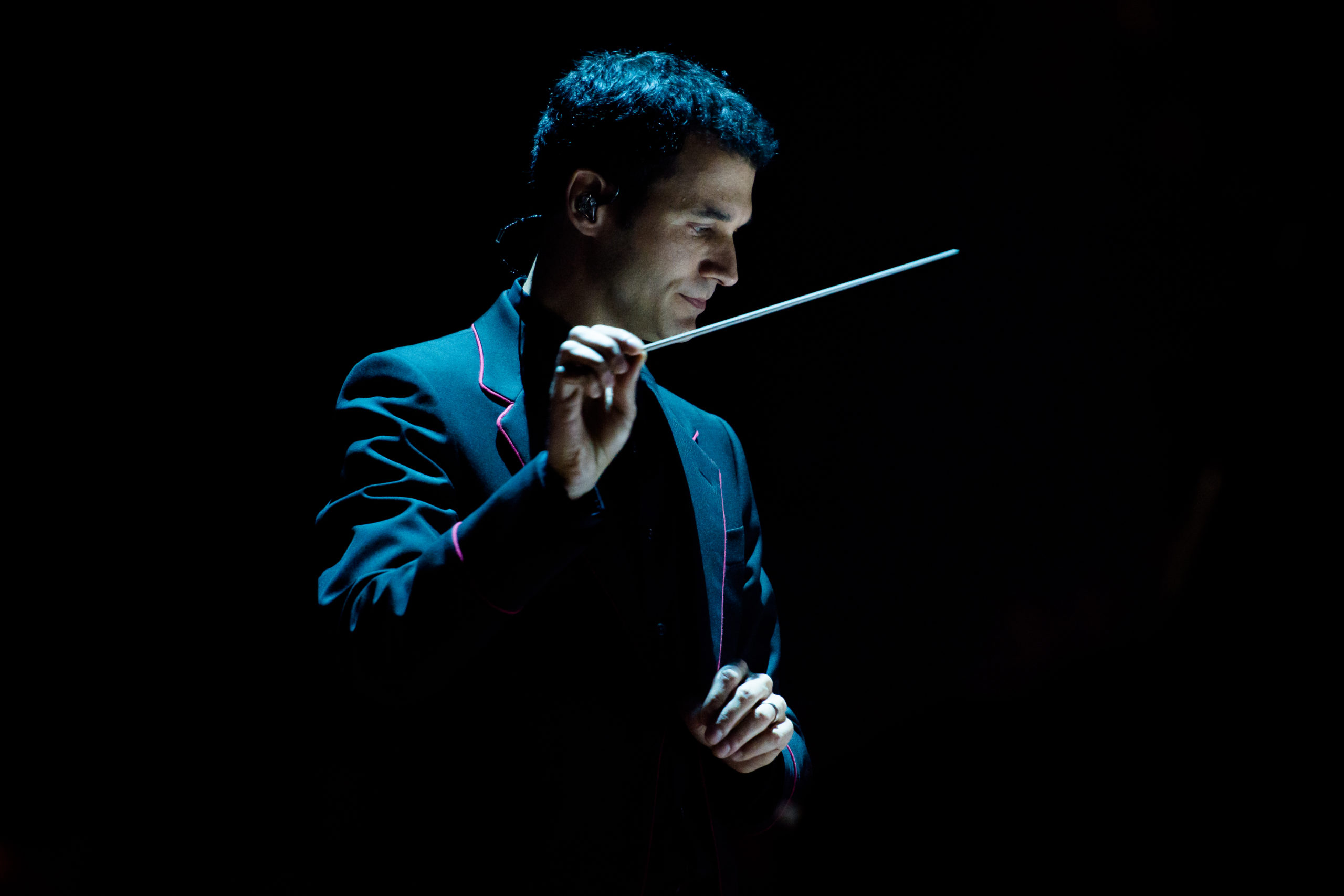Game of Thrones is a well-produced television show about dragons and incest, yes, but if you were being paid to teach a class about its themes you might venture that it explores multi-generational trauma—how all children, in some ways, pay for the transgressions of their parents. Just about every young person on the show has been made accountable for something their ancestors have done, good or bad. Daenerys Targaryen must constantly prove she’s not as unhinged as her father, the Mad King; the noble but cowardly Samwell Tarly struggles to escape the patriarchal domineerings of his father, the no-nonsense Randall Tarly; the whole Lannister clan is a tangled web of sex and rage and sin, a subject for several essays.
Most notable amongst all these downer daddy vibes are the Starks, who might be considered the show’s protagonists. The Stark children—six of them, if you count the bastard Jon Snow—have not had a good run of things over the last seven years. Robb got knifed because he married the wrong wife; Rickon got bow-and-arrowed because he couldn’t run in a dang zig-zag pattern. The survivors have had it rough, as well. Jon was elevated to a position of leadership against his choice, murdered by the people he trusted, and revived by a mysterious fire god only to be tasked with leading the war against a brigade of terrifying ice zombies; Sansa was held prisoner by the people who killed her dad, and married to a sadist against her will; Arya spent months living in squalor, on the run, as she eventually learned how to become a face-shifting assassin and bake, uh, people pie.
Then there’s Bran, who was crippled in the series premiere, and forced along a path to become an ageless tree wizard. Bran spent all of the show’s fifth season unseen, hanging out in a cave and tripping on tree drugs to transform into the Three-Eyed Raven, a mysterious figure capable of seeing through space and time into any character’s history, allowing him to connect dots that would remain unconnected were it not for his convenient power of visual flashback. Thanks to Bran’s cloudy eyes, we know that Jon Snow is actually a Targaryen; that the White Walkers were actually created by the Children of the Forest; that Hodor’s name was a slurring of the phrase “Hold the door,” shouted at him in the past from the present day.
How does it work? Magic… or something. When Bran himself was asked by Sansa what it means to be the Three-Eyed Raven, and responded, “It’s difficult to explain.”
This season, the Stark clan has finally—against endlessly torturous, heartbreaking odds—reunited at their family home of Winterfell, just in time to stave off the incestuous Lannisters and the unending ice zombies. Much has happened to Jon, Sansa, Arya, and Bran, and to watch their first meetings after so long has been genuinely heart-stirring. Because the show is running out of time, they don’t really have a lot of time to go into the details about every horrible thing that happened. On-screen, Arya can’t talk about how she went temporarily blind; Sansa can’t talk about getting raped on her wedding night; Jon can’t talk about watching the illicit love of his life die before his eyes. But we can imagine these conversations happening off-camera, in between all the planning of war.
Bran, though… nobody really knows how to talk about what happened to Bran. When Arya and Sansa reconnected on last night’s episode, it’s easy to imagine their conversation went something like this: “Bran’s back, too… he’s weird as hell now.” The boy himself has been stoic ever since coming through the Winterfell doors, his face frozen in a fancy-boy mask of inner reflection. By his own account, he doesn’t really connect with being “Bran Stark” anymore; he’s seen too much across all the eons of history to be a person anymore. While everybody is pulling their hair out, trying to figure out how to kill the ice zombies and the Lannisters and the Greyjoys and whoever else, Bran is riding a metaphysical wave, hanging out with some god-trees and going deeper than rap into stuff we have no clue about.
Watching him mug for the camera is at least entertaining because his actor, Isaac Hempstead Wright, is only so good at his job, and there isn’t much to do with stare into the distance like you’ve returned from Vietnam to a home you don’t recognize. Every time his pebbe-smooth face pops on screen, it’s hilariously only to gaze past the people talking to him to mutter something along the lines of, “k sounds cool.”
In a narrative sense, the Bran story is enjoyable because of its distancing from all the procedural mechanics of the show—the chess-moving of which armies will go where, which alliances will bear fruit. Seven seasons in, the show’s meticulous planning can feel a little farcical, since much of it goes nowhere and everyone is subject to a surprise death. Daenerys’ super-alliance lasted, like, three episodes before a Johnny Depp cosplayer teleported across the world with a fleet of warships.
Bran, on the other hand, is concerned with matters far beyond the earthly world. Does he even care about the Starks fighting back the Lannisters, or the White Walkers? It’s hard to tell. If you smoke a bunch of weed and trawl the GOT Reddit, a recommended activity, you can go down some very winding paths theorizing about what role Bran will play. Maybe he accidentally makes the Mad King mad; maybe he time travels way back and builds the Wall.
There are ways to twist him into being responsible for most of the unexplained events on the show to date… and watching all that potential expressed by a bummed-out Britpop fan is just good television. He managed to shake the typically unshakeable Littlefinger! He gave up his claim as Lord of Winterfell! Something’s going on here, and it’s probably the show’s best remaining mystery, as the show rapidly becomes plot-based at the expense of character. The only way they’ll ruin it is if he starts making too much sense.





